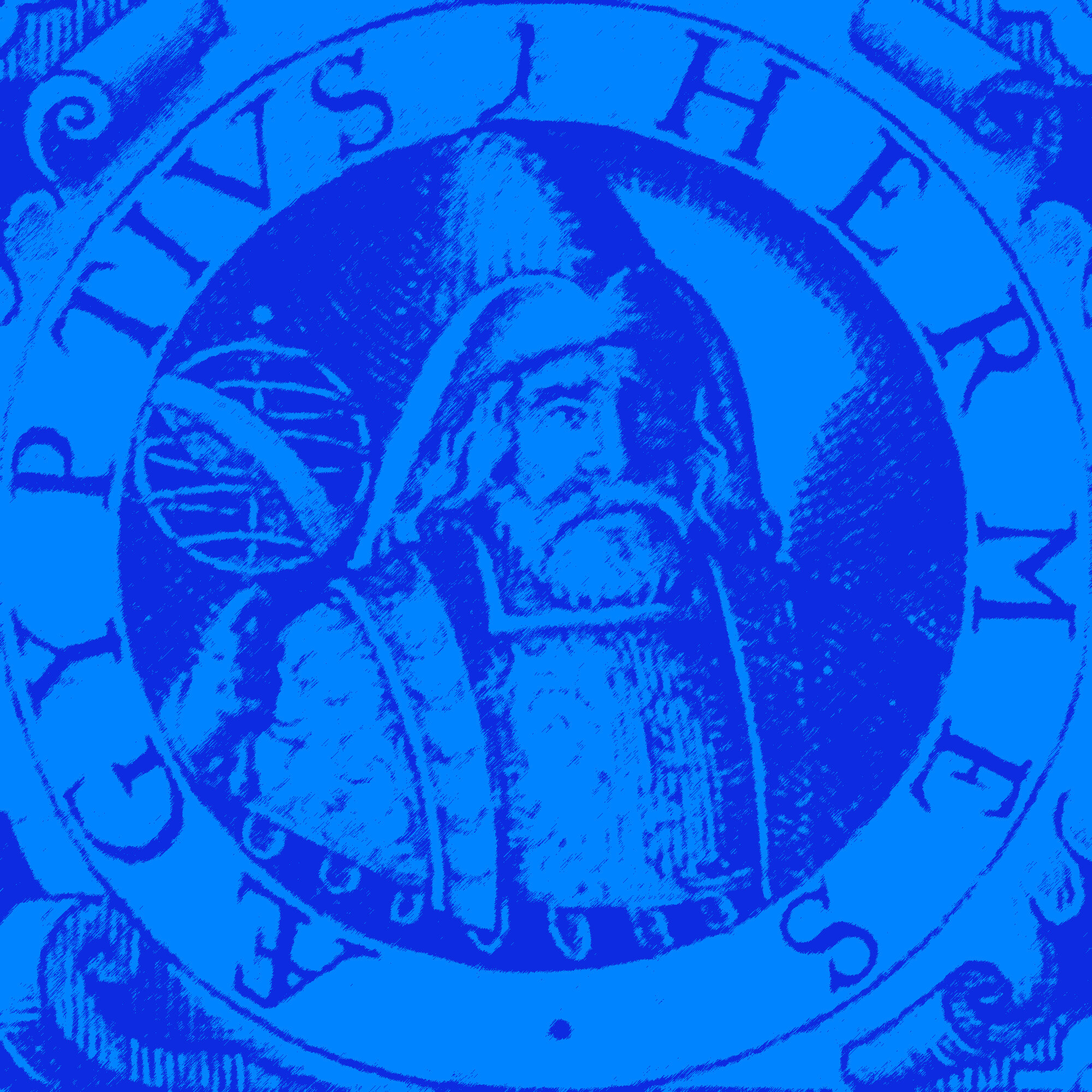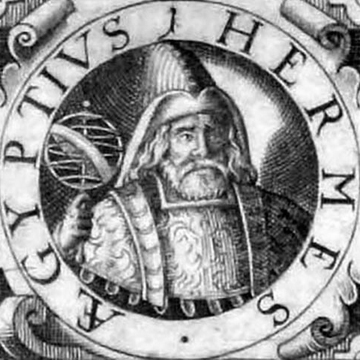
“Philosophy is nothing else than striving through constant contemplation and saintly piety to attain knowledge of God.”
― Hermes Trismegistus
HERMES TRISMEGISTUS
A Curated Selection Of Enlightened Works
Hermes Trismegistus (Ancient Greek: Ἑρμῆς ὁ Τρισμέγιστος, "thrice-greatest Hermes"; Latin: Mercurius ter Maximus) is the purported author of the Hermetic Corpus, a series of sacred texts that are the basis of Hermeticism.
Hermes Trismegistus may be associated with the Greek god Hermes and the Egyptian god Thoth.[1] Greeks in the Ptolemaic Kingdom of Egypt recognized the equivalence of Hermes and Thoth through the interpretatio graeca.[2] Consequently, the two gods were worshiped as one, in what had been the Temple of Thoth in Khemenu, which was known in the Hellenistic period as Hermopolis.[3]
Hermes, the Greek god of interpretive communication, was combined with Thoth, the Egyptian god of wisdom. The Egyptian priest and polymath Imhotep had been deified long after his death and therefore assimilated to Thoth in the classical and Hellenistic periods.[4] The renowned scribe Amenhotep and a wise man named Teôs were coequal deities of wisdom, science, and medicine; and, thus, they were placed alongside Imhotep in shrines dedicated to Thoth–Hermes during the Ptolemaic Kingdom.[5]
A Mycenaean Greek reference to a deity or semi-deity called ti-ri-se-ro-e (Linear B: 𐀴𐀪𐀮𐀫𐀁; Tris Hḗrōs, "thrice or triple hero")[6] was found on two Linear B clay tablets at Pylos[7] and could be connected to the later epithet "thrice great", Trismegistos, applied to Hermes/Thoth. On the aforementioned PY Tn 316 tablet—as well as other Linear B tablets found in Pylos, Knossos, and Thebes—there appears the name of the deity "Hermes" as e-ma-ha (Linear B: 𐀁𐀔𐁀), but not in any apparent connection with the "Trisheros". This interpretation of poorly understood Mycenaean material is disputed, since Hermes Trismegistus is not referenced in any of the copious sources before he emerges in Hellenistic Egypt.









